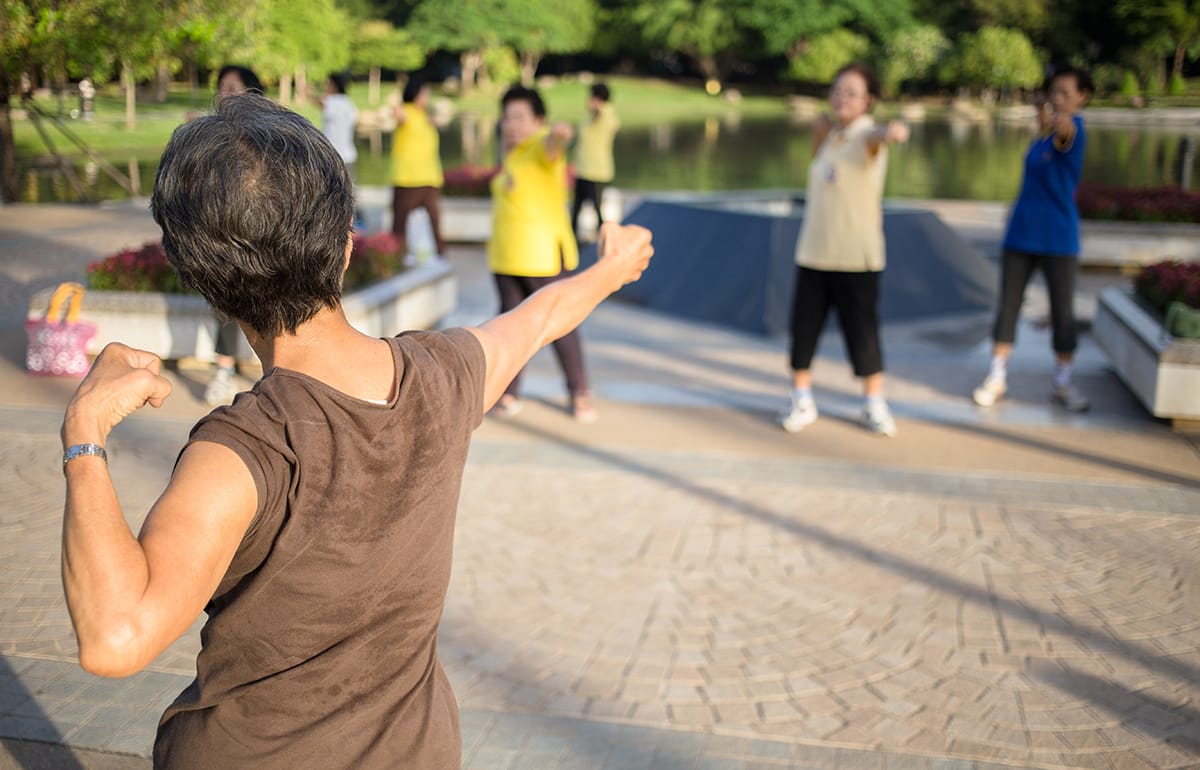Ever heard of Tai Chi? The Mayo Clinic describes it as “an ancient Chinese tradition that, today, is practiced as a graceful form of exercise.” Devotees of the practice say it has a variety of health benefits and can help you manage stress and anxiety. So if you find that stress and anxiety are interfering with your sleep, it’s possible Tai Chi could help you catch some more ZZZs.
What exactly does the practice entail? Tai Chi is a low-impact practice that involves moving slowly through various motions while focusing on your breathing. According to the Mayo Clinic, the potential health benefits of this practice include improved mood, enhanced aerobic capacity, decreased anxiety, stress, and depression, greater agility, balance, and flexibility, and increased energy and stamina.
There’s also some evidence Tai Chi can improve sleep quality. In the following sections, we’ll explore how a basic Tai Chi practice might be the answer to enjoying better sleep.
Tai Chi’s Connection to Sleep
Several studies suggest there may be a connection between Tai Chi and improvements in sleep quality.
One study followed elderly subjects who had cognitive impairments and reported issues sleeping. One group of participants practiced Tai Chi twice a week for 60 minutes, while the control group made no change to their routine. Those in the Tai Chi group reported better sleep quality and greater mental health compared with the control group.
Another study of people over the age of 55 found Tai Chi may be an effective treatment for insomnia thanks in large part to the fact that it helps reduce stress. When people are less stressed, they’re more likely to sleep better. What’s more, a regular Tai Chi practice was linked to reduced inflammation and greater health overall.
RELATED: How Does Exercise Affect Sleep?
How to Get Started
Interested in giving Tai Chi a try? The good news is it’s easy to get started.
One great thing about Tai Chi is that you don’t need any equipment or special clothing to practice it. Additionally, the Mayo Clinic says it’s generally safe for people of all ages and fitness levels.
If you are a total beginner, there are many different ways to try out Tai Chi. “Taking a class may be the best way to learn Tai Chi,” says the Harvard Health Publishing website. “Seeing a teacher in action, getting feedback, and experiencing the camaraderie of a group are all pluses. Most teachers will let you observe the class first to see if you feel comfortable with the approach and atmosphere.”
There may be a local instructor or group in your area; check Facebook or Yelp to search for options. If you’d prefer to try out Tai Chi on your own, look for YouTube videos with beginner sequences or see if your local library has videos or books.
No matter whether you struggle with anxiety or depression or you’re simply prone to stress every now and then, it’s important to prioritize stress reduction in the pursuit of better sleep. When it comes to snoozing better, Tai Chi may be one piece of the puzzle.
[Editor’s Note: The content provided on this site is for general informational purposes only. Any medical information provided is not a substitute for professional medical advice. We encourage you to consult with the appropriate health expert if you have concerns.]
Featured image: Natalia Hirshfeld/Shutterstock


